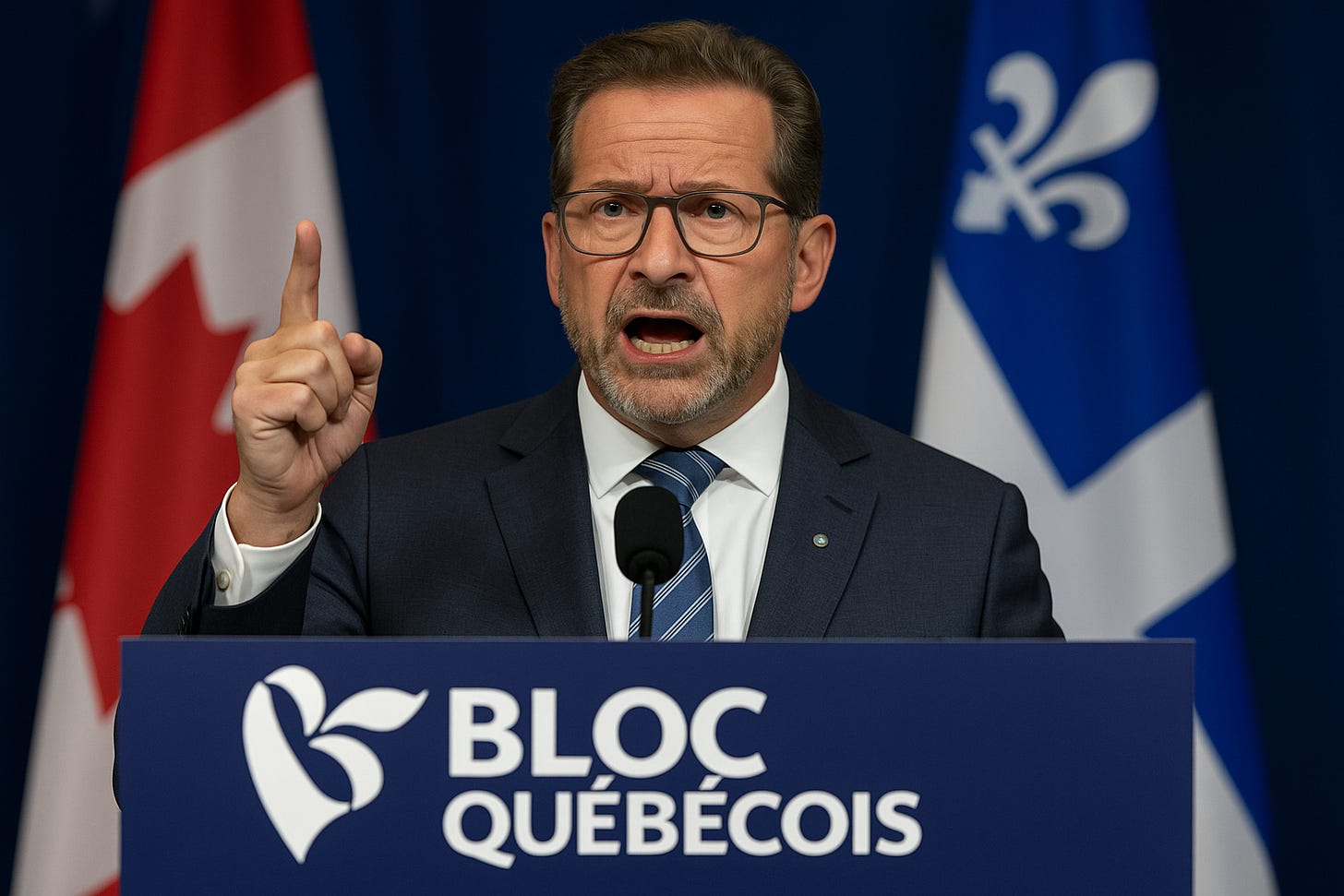Blanchet’s “Artificial Country” Claim Sparks National Outrage Ahead of 2025 Canadian Election

Tonight, the heart of Canada beats with intensity. In the final hours before a pivotal federal election, Bloc Québécois Leader Yves-François Blanchet has ignited a storm of controversy, standing by his assertion that Canada is “an artificial country with very little meaning.” The remark, delivered in Shawinigan, Quebec, has reverberated across the nation, drawing sharp rebukes from leaders in every corner of this land.
Blanchet, never one to retreat from the spotlight, doubled down on his statement the next day. He insisted his words were not meant as an insult, but as a sober observation. He described Canada as a post-national entity, a patchwork of regions stitched together to serve central interests, with Ottawa intent on concentrating power. He contrasted this with Quebec, which he called a proud nation, and made clear that he sees the House of Commons as a foreign parliament.
The reaction has been swift and fierce. Federal leaders have condemned Blanchet’s rhetoric in no uncertain terms. Mark Carney, leading the Liberals into this election, declared his pride in Canada and rejected the Bloc leader’s comments outright. Conservative Leader Pierre Poilievre called the remarks insulting and false, vowing to defend Canada’s unity and history. Jagmeet Singh of the NDP warned that such divisive language only weakens the country at a moment when Canadians face external threats and internal challenges.
The outrage has not been limited to federal politicians. Nova Scotia Premier Tim Houston penned an open letter, expressing deep offence and questioning Blanchet’s commitment to the country that has paid his salary for years. Houston’s words echoed the sentiments of millions of Canadians for whom the nation is not some abstract construct, but a living, breathing reality.
Blanchet’s comments are not without context. The Bloc Québécois has long championed Quebec sovereignty, and Blanchet himself has made no secret of his desire to see Quebec become a country. Yet his timing is remarkable. With the 2025 federal election set for April 28, and the Liberals projected to win a majority, the Bloc finds itself trailing in Quebec. Some observers suggest Blanchet’s remarks are a last-ditch effort to rally separatist support in a campaign where the stakes could not be higher.
This election is historic. Canadians will elect representatives to a newly expanded House of Commons, with 343 seats up for grabs. The Liberals, under Carney, are poised for a majority, while the Conservatives remain the main opposition. The Bloc’s fortunes have dimmed, and the NDP faces significant losses. The Greens are holding steady, and new voices are emerging, but the national conversation tonight is dominated by questions of unity, identity, and the very nature of Canada itself.
As Canadians prepare to cast their ballots, the air is thick with anticipation. The future of the country hangs in the balance, and the words of one party leader have forced a reckoning. Is Canada a mere collection of regions, or is it, as so many believe, a nation forged by shared values, sacrifice, and hope?
One thing is certain: the spirit of Canada endures. It endures in the pride of its people, in the resilience of its democracy, and in the unwavering belief that this country, whatever its challenges, is real, meaningful, and worth defending.




